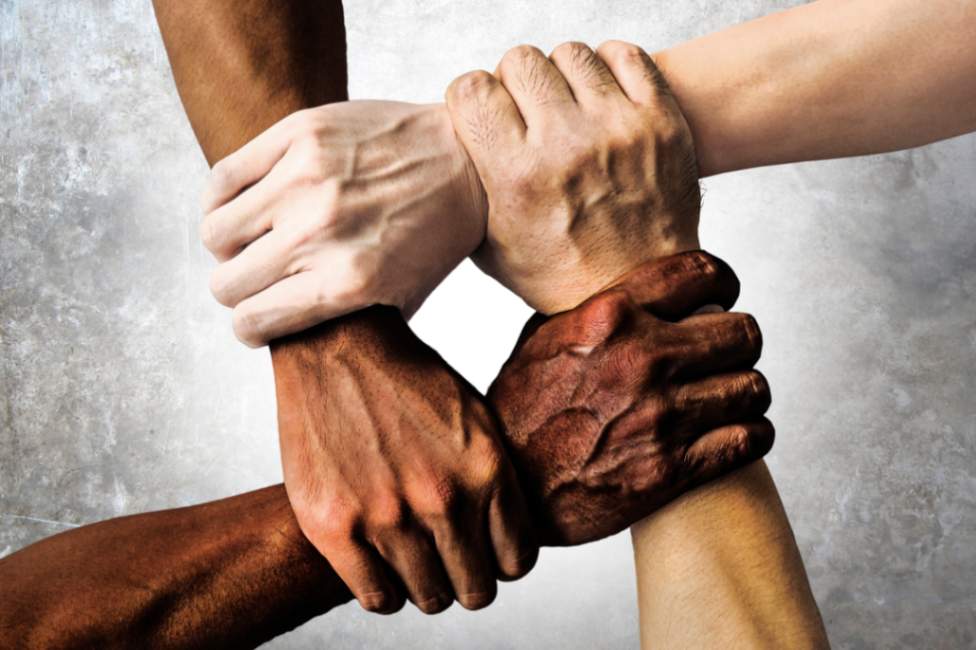July 26, 2022
How to Know If You Are Struggling With C-PTSD as a Person of Color
Written by Rachel Eddins
Posted in LGBTQ + Multicultural Concerns, Trauma, Grief & Loss and with tags: PTSD/Trauma, racial trauma

More people than ever are aware of Post-Traumatic Stress Disorder (PTSD). This is mostly a good thing.
But what happens when you add a “C” before the PTSD? C-PTSD. The C stands for “complex.”
The diagnosis still represents many of the same symptoms and effects as PTSD. However, C-PTSD also involves some crucial differences.
If you’re a person of color (POC), these differences may resonate strongly.
Simply put, C-PTSD is the result of sustained, ongoing trauma. It’s not the outcome of a single event.
Rather, this disorder arises after someone has faced long-term abuse, violence, neglect, or other ill-treatment.
What Distinguishes C-PTSD From PTSD?
PTSD can be caused by experiencing or witnessing a traumatic event, e.g.:
- Loss of a loved
- Sexual, emotional, verbal, or physical abuse
- Neglect or abandonment
- Illness, injury, or disability
- Natural disaster
The list goes on, but typically, the trigger is a single event.
With C-PTSD, as touched on above, the trauma is sustained. For example:
- Sex trafficking
- Kidnapping or slavery
- Being prostituted
- Ongoing domestic abuse
- Being a prisoner of war
C-PTSD has a deeper impact if the trauma first happened at a young age and leaves you with a feeling that you can’t escape it.
Common Symptoms of C-PTSD
The nightmares and flashbacks of PTSD are also present in those with C-PTSD. However, some unique symptoms exist, like:
- Feeling hopeless that things will never improve
- Anger at the world and those in power
- Unable to control your emotions
- Difficulty trusting others
- Feeling misunderstood and outcast in society
- Self-isolation and an unwillingness to get too close to people
- Feeling suicidal
What Does C-PTSD Have to Do With Racism?
As you read the previous section, the connections probably became apparent. Of course, any person of color is susceptible to a single, brutal, traumatic event.
However, it is far more common that a POC will endure ongoing micro-aggressions, e.g., being denied housing or jobs or promotions.
These relentless events can provoke hopelessness, lack of trust, and anger in the society you live in. Even worse, they can add up to Complex Post-Traumatic Stress Disorder.
In a very recent post, I listed just some of the ways POC trauma can manifest. Many, many of those examples were chronic.
You never get used to news stories of violence, discrimination, or marginalization. They just keep coming.
Meanwhile, the personal affronts, insults, and abuses remain. Starting at a young age, this ongoing bias accumulates with the potential to cause C-PTSD.
What to Do If You Think You Have C-PTSD
First of all, do not downplay it. You don’t need to suffer direct violence to be traumatized.
You may feel ashamed to report that the totality of systemic racism has impacted you.
What about those who have been shot or those who’ve been jailed despite being innocent? You may ponder.
Yes, these are terrible realities, but trauma is not a scorecard. Accept what is happening to you and get the help you need.
In the meantime, practice self-love and self-care. Prioritize your needs to help build some resilience for the journey to recovery.
Also, connect with those in your community—especially POC who are also struggling with C-PTSD. Find strength in solidarity.
Do not surrender the stigma that needing mental health is a sign of weakness. On the contrary, asking for help is a display of strength.
Finally, you must recognize that you will need support from a professional. You can heal from trauma but will need help doing so.
If you want to get started with a Houston, Montrose, or Sugar Land therapist who gets it, we’d love to chat with you. Let’s connect for a free and confidential consultation soon.
Additional Information on our Trauma Services:
- Trauma & PTSD Treatment
- Trauma-Focused Cognitive Behavioral Therapy (TF-CBT)
- Brainspotting Trauma Therapy
7 Mood-Boosting Tips
Get instant access to your free ebook.



















